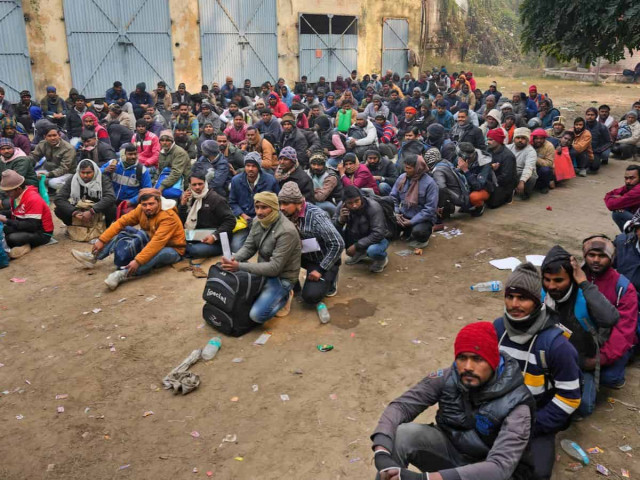Amid fears over the Israel-Hamas war, 10,000 Indian construction workers will arrive in Tel Aviv next week
- Posted on January 31, 2024
- International Conflict and Politics
- By Arijit Dutta
- 384 Views
Amidst the Israel-Hamas conflict, Israel faces a severe manpower crisis in its construction sector. To address this, the Israeli government has increased the hiring quota for foreign workers, with 10,000 skilled laborers from India set to arrive. Despite the ongoing conflict, workers are drawn by the promise of higher wages.
 Image Source -www.siasat.com
Image Source -www.siasat.com
In
response to the severe manpower shortage in Israel's
construction industry following the conflict with Hamas, the Israeli
government has approved the entry of 10,000 skilled Indian workers. The
workers, part of the private recruitment track, will arrive in batches over the
next few weeks, aiming to alleviate the crisis in ongoing construction
projects. This move follows Israel's decision to ban Palestinian and other
foreign workers post-conflict, exacerbating the industry's challenges.
The
Calcalist, an Israeli business daily, reported a significant increase in the
quota of foreign manpower for the construction industry, raising it from 30,000
to 50,000. Confirming this, the Israel Builders Association (IBA) revealed that
the government has approved the arrival of 10,000 Indian workers. The first
batch is expected to land in Israel next week, providing much-needed support to
the struggling construction sector.
The preference for Indian laborers is attributed to their high professional level, language proficiency in English and Arabic (for those previously employed in the Gulf), and the advantageous skills they bring. The IBA, led by CEO Igal Slovik and division head Izchak Gurvitz, is actively screening workers from countries like Mexico, Kenya, and Malawi, with the majority found suitable among the Indian candidates.
Also Read: Zoom Unveils Advanced App For Apple Vision Pro: Essential Details Revealed
Despite
the risks associated with moving to a conflict zone, Indian workers, including
masons, painters, electricians, and plumbers, are motivated by the prospect of
earning five times more than in their home country. Prime Minister Benjamin
Netanyahu and Indian Prime Minister Narendra Modi discussed advancing the
arrival of foreign workers during a telephone conversation, emphasizing the
strong economic ties between the two nations.
The broader context reveals that Israel and India previously inked an agreement to allow 42,000 Indian workers to contribute to Israel's construction and nursing sectors. The move aims to address rising living costs and assist families in need of nursing care. This strategic collaboration underscores the resilience and determination of the Indian workforce, willing to navigate conflict zones for promising economic opportunities. The ongoing partnership between Israel and India continues to evolve, creating avenues for economic growth and cross-cultural cooperation.




